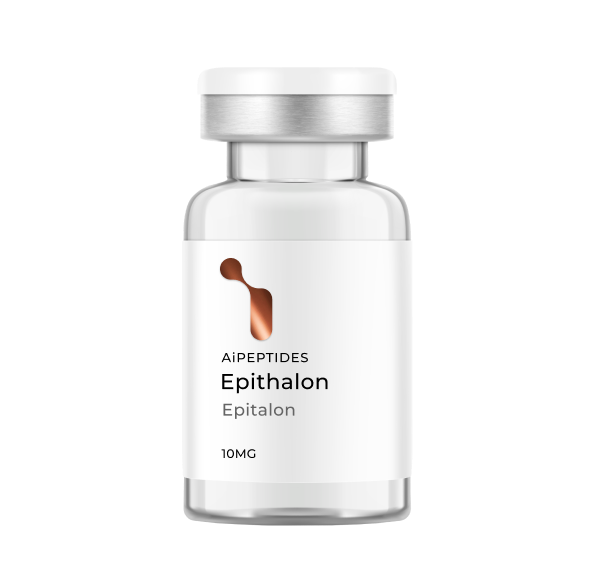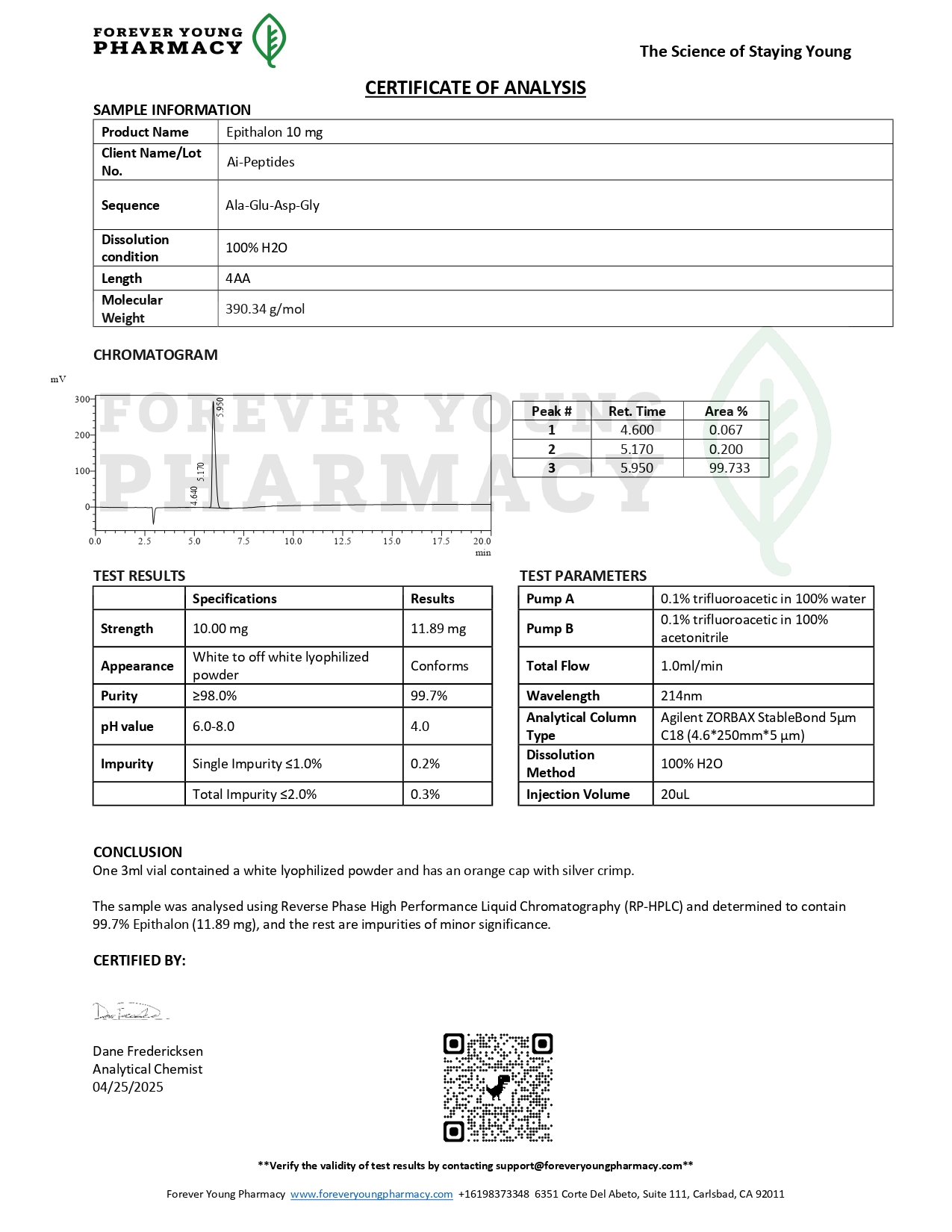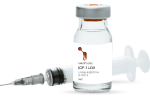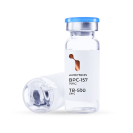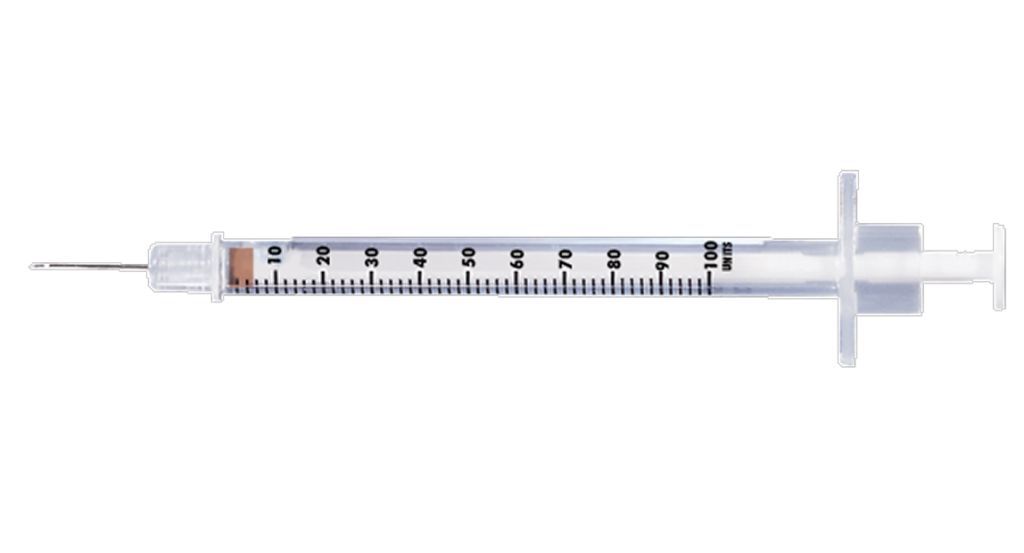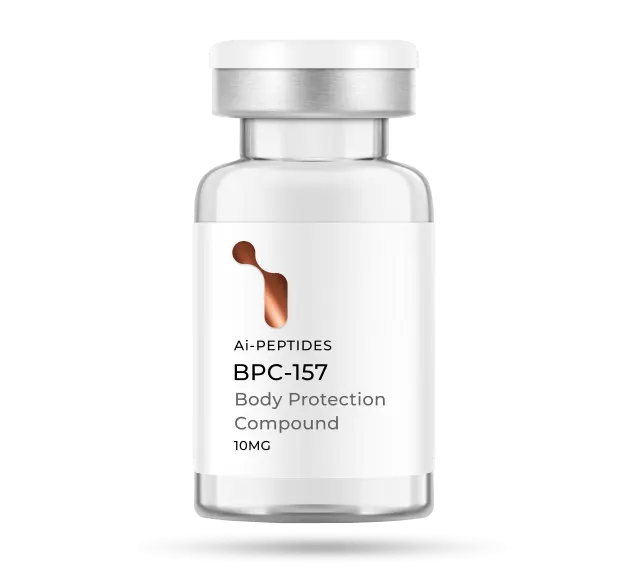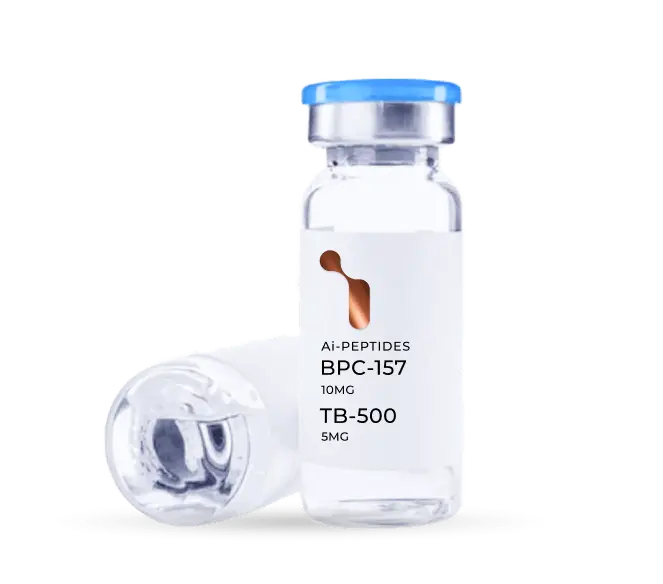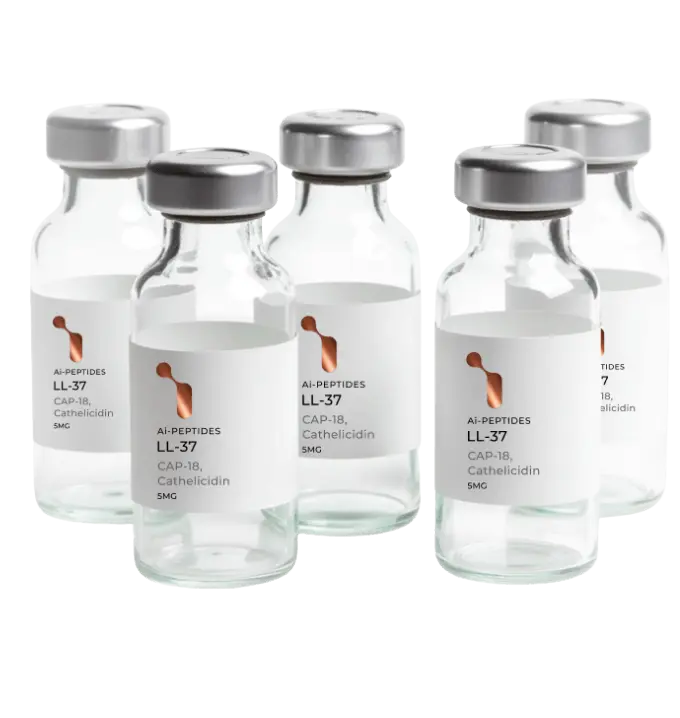Researchers are interested in Epithalon because it gives a simple way to ask big questions about cellular “timekeeping.” By looking at markers tied to telomeres and telomerase activity in controlled models, labs can explore how DNA maintenance and cell longevity signals might shift under different conditions.
In preclinical literature, Epithalon is discussed as a tool for probing telomerase-linked pathways—how telomere length relates to genomic stability, cell cycle checkpoints, and stress responses. Teams often track readouts like telomere dynamics, DNA damage markers, and downstream gene expression to map what changes and when. These are research signals, not medical outcomes, and results depend on model and protocol.
Choose quality that’s easy to trust: our Epithalon is produced to high purity (≥99% typical), identity-confirmed by mass spectrometry, and purity-verified by HPLC. Every order includes a lot-specific Certificate of Analysis (COA) with real data—so you can see the chromatogram, identity match, and impurity profile for your exact vial.
Consistency matters for repeatable results. We keep the same specification and analytical “fingerprint” across batches and track every lot number, so you can reorder the profile you liked and reduce variability in follow-ups, comparisons, and method development.
If you value clarity, documentation, and reliable quality, Epithalon from AI Peptides delivers exactly that—clean material with transparent proof, ready for rigorous lab work.
